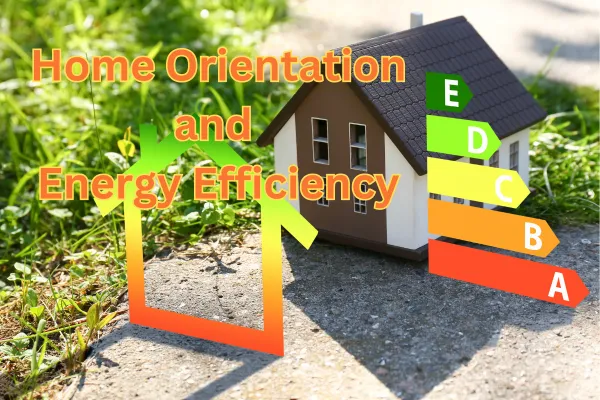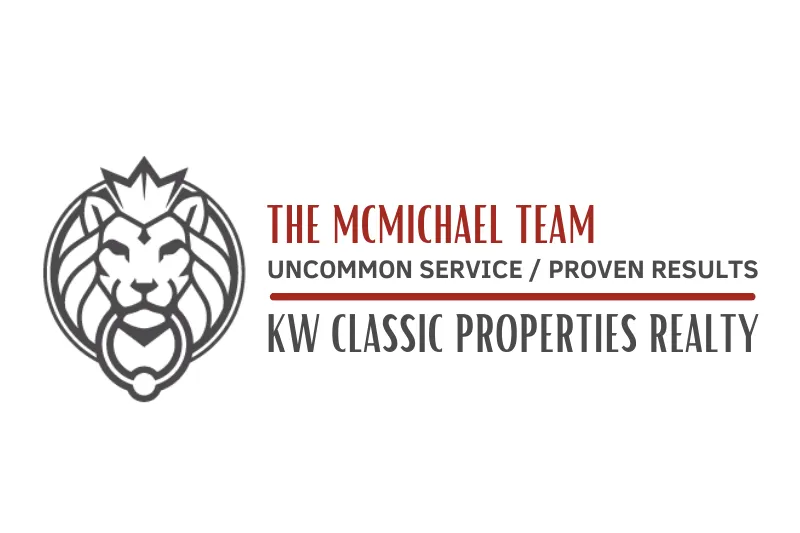Recent Posts

Understanding the Impact of a Home's Orientation on Energy Efficiency
“A true conservationist is a man who knows that the world is not given by his fathers, but borrowed from his children.” - John Jame Audubon
Introduction:
Energy efficiency is a crucial element in home design not just for the environment but also for saving money. In this article we will delve into how a home's orientation affects energy efficiency and how the direction it faces can have an impact on heating, cooling, and overall energy usage.

The direction a property faces can significantly affect heating, cooling, and overall energy consumption.
What Does Home Orientation?
Home orientation refers to how a house is situated on its lot and the direction it faces. It plays a vital role in determining a homes energy efficiency. The cardinal directions - North, South, East and West -dictate how sunlight interacts with the property throughout the day, affecting temperature and energy requirements.
The Role of Solar Energy
A home's orientation directly influences its exposure to solar energy. Properties facing south receive the sunlight throughout the day making them ideal for harnessing power. This exposure can be utilized for winter heating while minimizing cooling needs during summer months thus contributing to energy efficiency.
Efficiency in Heating and Cooling
Proper positioning of a home can greatly impact heating and cooling efficiency. For example, a south facing house can naturally absorb heat from the sun during winter months reducing reliance on artificial heating methods. On the hand, a house that faces west may encounter excessive heat gain in the afternoon which can result in higher cooling needs.
Passive Solar Design
Passive solar design refers to an architectural approach that takes advantage of a home's orientation and design features to optimize energy efficiency. It involves strategically placing windows, utilizing materials with thermal mass (such as concrete or tile), and incorporating shading devices like awnings or overhangs. By doing so, homes can naturally regulate their temperature and reduce reliance on mechanical heating and cooling systems.
Energy Savings and Cost Reduction
One of the benefits of properly oriented homes is the potential for substantial energy savings and cost reduction. Research has demonstrated that well-oriented homes can decrease energy bills by up to 20% compared to poorly oriented ones. Over time these savings can accumulate significantly making an energy-efficient home orientation a smart investment.
Common Mistakes in Home Orientation
Regrettably, many homeowners underestimate the importance of home orientation when purchasing or designing their houses. Common mistakes include placing windows in the wrong positions, disregarding the angle of the sun's path, or neglecting effective shading strategies. These errors can result in increased energy consumption and discomfort within the house.
Tips for Improving Home Orientation
To enhance home orientation, homeowners should consider seeking professional guidance for practical insights and recommendations. Here are a some steps that individuals can consider;
1. Landscaping: A great way to optimize your homes energy efficiency is by planting trees on the west side of your house. This will provide shade during the summer while still allowing sunlight to enter during the winter months.
2. Window Placement: Another important aspect is strategically positioning your windows to maximize light and ventilation while minimizing direct exposure to the sun.
3. Insulation: Investing in high quality insulation is crucial for maintaining an temperature throughout the year.
Technological Solutions
Modern technologies can further enhance energy efficiency in homes complementing orientation. Smart thermostats, energy-efficient HVAC systems, and programmable lighting can greatly reduce energy consumption when combined with a well oriented home.
Environmental Benefits
Not only do energy efficient homes benefit homeowners financially, they also have positive environmental impacts. By reducing energy consumption, these homes contribute to fewer greenhouse gas emissions and a smaller carbon footprint, helping create a sustainable future for all.
Conclusion
In conclusion, it is crucial for homeowners to understand how a homes orientation affects energy efficiency. By considering factors such as, directions, solar exposure and passive solar design principles homeowners can create living spaces that are both comfortable and energy efficient. This not only saves money on utility bills, it also contributes to a more environmentally friendly future.
FAQs
1. Can the orientation of my home really impact energy efficiency?
Yes, the orientation of your home can significantly affect energy efficiency by influencing heating, cooling, and overall energy consumption.
2. What cardinal direction is best for energy efficiency?
South-facing properties receive the most sunlight and are often ideal for energy efficiency, but the best direction depends on your location and specific design considerations.
3. How can I improve my home's orientation if it's already built?
You can still enhance energy efficiency through measures like strategic landscaping, window treatments, and improving insulation.
4. Are there government incentives for energy-efficient home improvements?
Yes, many governments offer incentives, tax credits, or rebates for energy-efficient home improvements. Check with local authorities for available programs.
5. Can I combine technological solutions with proper home orientation?
Absolutely. Technological solutions like smart thermostats and energy-efficient appliances can complement a well-oriented home and further reduce energy consumption.
Recent Posts

Understanding the Impact of a Home's Orientation on Energy Efficiency
“A true conservationist is a man who knows that the world is not given by his fathers, but borrowed from his children.” - John Jame Audubon
Introduction:
Energy efficiency is a crucial element in home design not just for the environment but also for saving money. In this article we will delve into how a home's orientation affects energy efficiency and how the direction it faces can have an impact on heating, cooling, and overall energy usage.

The direction a property faces can significantly affect heating, cooling, and overall energy consumption.
What Does Home Orientation?
Home orientation refers to how a house is situated on its lot and the direction it faces. It plays a vital role in determining a homes energy efficiency. The cardinal directions - North, South, East and West -dictate how sunlight interacts with the property throughout the day, affecting temperature and energy requirements.
The Role of Solar Energy
A home's orientation directly influences its exposure to solar energy. Properties facing south receive the sunlight throughout the day making them ideal for harnessing power. This exposure can be utilized for winter heating while minimizing cooling needs during summer months thus contributing to energy efficiency.
Efficiency in Heating and Cooling
Proper positioning of a home can greatly impact heating and cooling efficiency. For example, a south facing house can naturally absorb heat from the sun during winter months reducing reliance on artificial heating methods. On the hand, a house that faces west may encounter excessive heat gain in the afternoon which can result in higher cooling needs.
Passive Solar Design
Passive solar design refers to an architectural approach that takes advantage of a home's orientation and design features to optimize energy efficiency. It involves strategically placing windows, utilizing materials with thermal mass (such as concrete or tile), and incorporating shading devices like awnings or overhangs. By doing so, homes can naturally regulate their temperature and reduce reliance on mechanical heating and cooling systems.
Energy Savings and Cost Reduction
One of the benefits of properly oriented homes is the potential for substantial energy savings and cost reduction. Research has demonstrated that well-oriented homes can decrease energy bills by up to 20% compared to poorly oriented ones. Over time these savings can accumulate significantly making an energy-efficient home orientation a smart investment.
Common Mistakes in Home Orientation
Regrettably, many homeowners underestimate the importance of home orientation when purchasing or designing their houses. Common mistakes include placing windows in the wrong positions, disregarding the angle of the sun's path, or neglecting effective shading strategies. These errors can result in increased energy consumption and discomfort within the house.
Tips for Improving Home Orientation
To enhance home orientation, homeowners should consider seeking professional guidance for practical insights and recommendations. Here are a some steps that individuals can consider;
1. Landscaping: A great way to optimize your homes energy efficiency is by planting trees on the west side of your house. This will provide shade during the summer while still allowing sunlight to enter during the winter months.
2. Window Placement: Another important aspect is strategically positioning your windows to maximize light and ventilation while minimizing direct exposure to the sun.
3. Insulation: Investing in high quality insulation is crucial for maintaining an temperature throughout the year.
Technological Solutions
Modern technologies can further enhance energy efficiency in homes complementing orientation. Smart thermostats, energy-efficient HVAC systems, and programmable lighting can greatly reduce energy consumption when combined with a well oriented home.
Environmental Benefits
Not only do energy efficient homes benefit homeowners financially, they also have positive environmental impacts. By reducing energy consumption, these homes contribute to fewer greenhouse gas emissions and a smaller carbon footprint, helping create a sustainable future for all.
Conclusion
In conclusion, it is crucial for homeowners to understand how a homes orientation affects energy efficiency. By considering factors such as, directions, solar exposure and passive solar design principles homeowners can create living spaces that are both comfortable and energy efficient. This not only saves money on utility bills, it also contributes to a more environmentally friendly future.
FAQs
1. Can the orientation of my home really impact energy efficiency?
Yes, the orientation of your home can significantly affect energy efficiency by influencing heating, cooling, and overall energy consumption.
2. What cardinal direction is best for energy efficiency?
South-facing properties receive the most sunlight and are often ideal for energy efficiency, but the best direction depends on your location and specific design considerations.
3. How can I improve my home's orientation if it's already built?
You can still enhance energy efficiency through measures like strategic landscaping, window treatments, and improving insulation.
4. Are there government incentives for energy-efficient home improvements?
Yes, many governments offer incentives, tax credits, or rebates for energy-efficient home improvements. Check with local authorities for available programs.
5. Can I combine technological solutions with proper home orientation?
Absolutely. Technological solutions like smart thermostats and energy-efficient appliances can complement a well-oriented home and further reduce energy consumption.

1349 W. Lane Ave, Suite 1125, Columbus, OH, 43221
(614) 769-7766
(614) 768-6531
www.livingincolumbus.com





